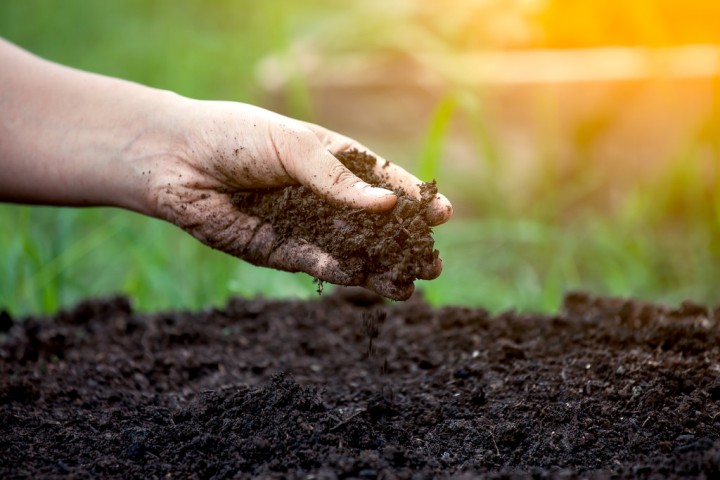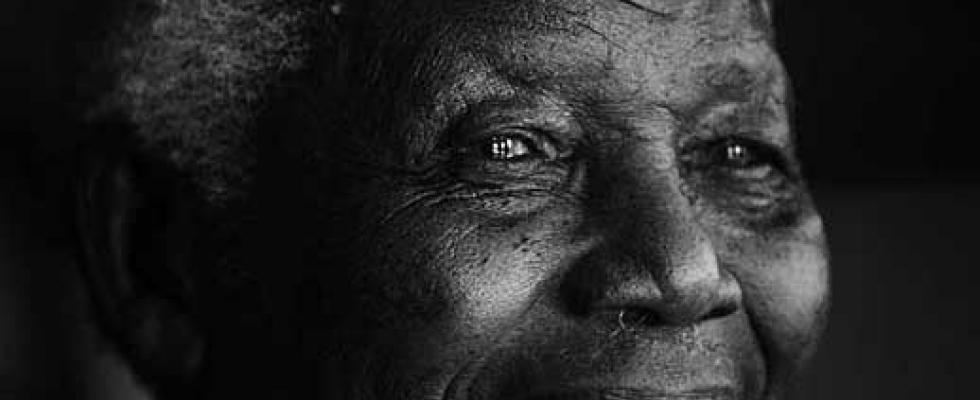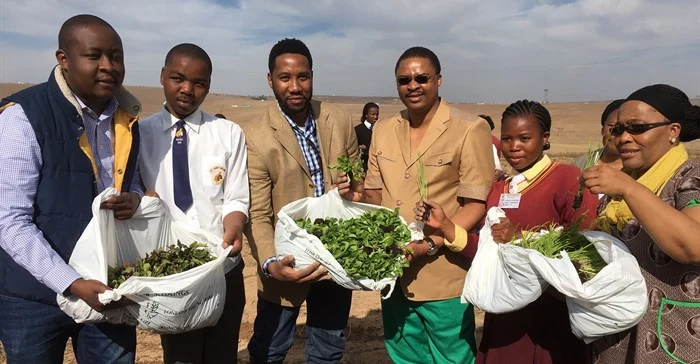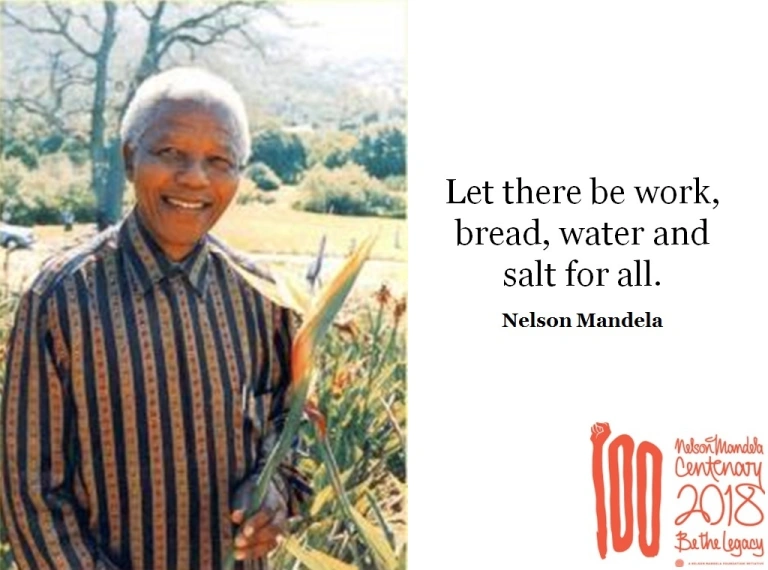
Mandela’s Long Walk for Agriculture
Madiba would have turned 104 had he lived to celebrate his birthday on the 18th of July 2022. He was born into the Madiba clan as Rolihlahla Mandela in the village of Mvezo in the Eastern Cape. By Marinda Sauerman
It is no secret that Madiba had enormous respect for the agricultural sector. He was passionate about food security and wanted Africa to understand and know how important food security was to the people of Africa. He also believed that it started with having respect for the land and whoever worked the land, from the farm worker to the farmer. He believed that every single person involved in the process that brings food to the tables of our people was valuable.
Mandela understood the struggle that farmers had. He knew about their hard work, long working hours and their battle against the elements. He knew because he himself was a farmer. He cultivated the land himself, so he had first-hand understanding of the battles that lingered beneath the surface.


Brazilian woman in medical face mask working on farm field in spring day, harvesting organic zucchini. Concept of new life reality and precautions in coronavirus pandemic 

In his memoir, a long walk to freedom he explained that at the age of five he was a herd boy looking after sheep and calves. He walked the fields himself. He said that he discovered a mystical attachment the Xhosas have for cattle as a source of food, and wealth. They believed it to be a blessing from God and a source of infinite happiness.
When the world thinks of our beloved Madiba, they think of love, transformation, reconciliation and empathy for our rainbow nation. He had a mission to take the wrong doings of the past and educate the uneducated about the struggle of those who were suppressed for so long by the minority. He wanted to take the broken hearted and walk the “fields” with them, teach them about forgiveness and sustainable living. Madiba knew if small farmers were respected and educated, they will be the ones that feed their communities. He understood the value of generating food in rural areas.
Nelson Mandela did not look upon agriculture lightly. He was serious about transformation and inclusion in this sector. Madiba had direction and purpose for agriculture, and it might be time for leadership to revisit his vision and bring it full circle.

Madiba in collaboration with Thoko Didiza was instrumental in the establishment of the agricultural sectorial plan. This was the very first democratic, collaborative afford between organized agriculture and the farmers and farm. Through this collaboration, structured upliftment programs were established that included all farmers in South Africa. Their mutual objective simply being to better the life of all South Africans.
Madiba dreamed of a future generation of farmers taking the sector forward with passion and integrity. He truly believed that young people had to take it upon themselves to be educated and then to use their education to think creatively and lead the older generation forward in their thinking, while sustaining old fashioned hard work.
He wanted the youth to have financially savvy and be sensitive to the huge responsibility they hold in securing the agricultural sector and providing food for Africa. Agriculture needed young blood and renewal – and Madiba recognised this.
At the opening of the Congress of the South African Agricultural Union (SAAU) on their 90th anniversary in Cape town, 18 October 1994, Nelson Mandela said, “The success of the Reconstruction and Development Programme (RDP) requires a partnership among all social structures. Few other sectors can be as crucial in this as the agricultural industry: for it is on your shoulders that the food security of the nation rests. It is on your efforts that a great part of the manufacturing industry relies for its raw materials.”
Mandela understood hunger, he lived beside it and then he used his power to address it. He acknowledged that no man can be free if they are hungry. Mandela said that to be free is not to merely cast-off one’s chains but to live in a way that respects and enhances the freedom of others.
His dream was for experienced farmers to pay forward their expertise by training incoming commercial farmers, teaching them how to become successful. In this model the one helps the other to secure future farmer longevity in all the different branches of operation. His passionate goal was to secure access to resources for proper nutrition. To him this was the one single action that could rip SA out of the clutches of poverty and dependency on other countries and would also have the largest impact on reconciliation amongst South Africans.
Madiba’s 95th birthday celebration was used to highlight food security and nutrition. At that stage our beloved Madiba was too ill to attend the celebration. He fought till his dying day for the +- 850 million people in the world that go to sleep hungry.
Quotes from The Nelson Mandela Centre of Memory
Kings Park Stadium, Durban,1990
“Open the cooking pots and ask the men why there is so little food inside. When the rain comes into your homes, place the hands of your men in the pools on the floor, and ask them why? There is only one answer, and that answer is our common deprivation.”
53rd UN General Assembly, New York,1998
“The very right to be human is denied every day to hundreds of millions of people as a result of poverty, the unavailability of basic necessities such as food, jobs, water and shelter, education, healthcare and a healthy environment.”
The Ideal World
Hopefully the words refraining in the hearts of all human beings, forever, will be the ones he spoke from the dock on 20 April 1964:
“I have fought against white domination, and I have fought against black domination. I have cherished the idea of a democratic and free society in which all persons live together in harmony and with equal opportunities. It is an ideal which I hope to live for and achieve. But if needs be, it is an ideal for which I am prepared to die.”
